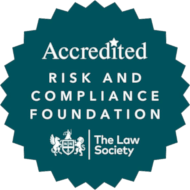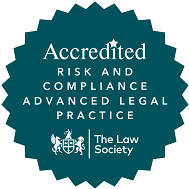After a friend or family member has died, their financial affairs will need to be sorted out. We don’t underestimate the difficulties this presents, on both an emotional and a practical level. It’s an unenviable task for those who hold a personal connection.
What some don’t realise is that, as well as dealing with the deceased’s assets, they must also handle their debts. That’s because a person’s debts do not automatically die with them. Someone who leaves credit card balances, a car loan, mortgage, or a tax bill, for example, is effectively passing on the responsibility for settling their debts to someone else, usually the executors of the Will or a family member if the deceased died without a Will. In the same way as assets boost an estate’s value, debts deplete it and have to be paid before the estate is distributed.
The full extent of a person’s debts isn’t always known until the affairs are consolidated in the period following their death. It is really important to establish as early as possible who is liable for settling the debt. If the debt is held in the deceased’s sole name then their estate is liable to repay the debt. However the debt might have been held jointly, in which case the liability might be split between the deceased’s estate and the survivor or might be the sole responsibility of the survivor. Alternatively, there might be a guarantor who becomes responsible for repaying the debt or an insurance policy which will pay out on the deceased’s death which will repay the debt, such as a life insurance policy to repay an outstanding mortgage.
We work very closely with families and with executors to help with the challenges that estate administration poses. This includes a thorough investigation of the assets and debts of the deceased’s estate, as well as advising on the application of the strict legal process of settling debts and then distributing the assets.
Although there is no way to guarantee that you won’t leave a number of debts and other issues for your executors and family members, with effective lifetime planning advice, we can help you to organise your affairs and manage your assets and liabilities and help to make things easier to sort out on your behalf once you have died. It could also mean that there will be more of your assets to pass to your chosen beneficiaries. A deceased person’s debts are paid off first, and beneficiaries only get what is left in the pot.
We can help you with tailored legal advice and work with your financial adviser to help you to provide for a better future for those you care about.
Contact us to find out more about how we could help you with any issues relating to your own debts, or to the management of the estate of someone else.












